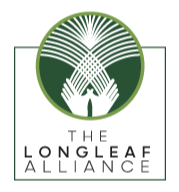LCC Coordinators Lessons Learned
The purpose of this collaborative effort is to reflect on the many challenges and barriers LCC Coordinators have tackled in the ~8 years the LCCs have been in existence. The intent is to capture the creative problem-solving from the LCC Coordinator's perspective with the objective of developing guidance as the landscape conservation effort transitions from the initial launch of the DOI-LCC approach to collaborative landscape conservation through partnerships.
The level targeted in this review is at the individual "operating unit" level or individual LCC. It is not an assessment of the sponsoring agency (Highest-level - DOI (primarily FWS), nor is it at the (Mid-Level - of the Network and its associated LCC Council level) but rather the lessons learned in creating the institution of the collaborative partnership.
Given the 22-LCCs were, by design, to be self-directed partnership, identifying, assembling, and supporting the partnership reflects the individual efforts to implement the shared vision and purpose of this science-management partnership. Purpose of the "Lessons Learned" effort is, not only capture but to examine the results of the "unique experiments" in a broad contextual sense. The goal is to provide information on the 'human-dimensions' of working in partnership it this level which may help and serve as guidance for the '2nd generation of large landscape-level collaborative partnerships' as they continue to evolve across NA. We want to support the effort to 're-imagine' the LCC model.
Step 1. 'Scoping' Phase
[week of Dec 11th-15th ] emails / materials assembled
- "Why Do This"?
Call on Dec 18th: Action Items Identified
- Jean to start drafting a description of the study: Statement of Purpose, Intended Audience, Methodology, Desired Outcome. Team will review and discuss after 1st of the year.
- Study Design Team: as part of the approach to identify an appropriate methodology (i.e., to conduct a survey of the LCC Coordinators writ-large), we will initially work with a small sub-group of LCC Coordinators, focusing initially on those that have been involved 'since the beginning' and have insights into the evolution of their partnership and have been part of that individual unit (LCC) decision-making and design. Survey instrument to be determined but envisioned to be both structured open interviews, as well as on-line narratives based on appropriate focal questions.
- Desired Outcome: In general it is agreed that the purpose is to help develop guidance as this network community transitions to a new network and individual partnership structure.
- Jean & John to draft a structure which categorize the various area of work Coordinators operate within for the purpose of helping to identify areas that may yield Lessons Learned. This is part of the Methodology -- to create an analytical framework that may aid in structuring the findings vs. ad hoc 'story-telling'.
- Jean & Catherine Doyle to work on a review of the literature that identifies 'organizational challenges,' to also help inform methodology.
- Reference in review: Broad-Scale Collaborative Conservation within Complex Social-Ecological Systems (2015 unpub. C. Doyle-Capitman)
Working google-doc is available for Team member input
Resources: from individual LCC's assessment effort (part of wrap-up/help inform transition)
- AppLCC: Structured phone interviews with Steering Committee members, retirees, and key partners. Conducted by Dr. Maddie Brown, Penn State University/AppLCC Cultural Resource Research Fellow.
- Interview summary description {file: interviewfocusforDecmeeting_2017-11-7_mb}
- Template to capture/conduct interviews {file: phoneinterview_final_mb}
- Preliminary results -- as presented during the "Appalachian Conservation Partners" meeting Dec 5th/6th {link to http://applcc.org/people/workshops}
- California LCC: CALCC_SOW Award Retrospective Analysis Final. {file: CALCC_SOW Award Retrospective Analysis Final}
- PICCC:(in development)
- GCPO:


























